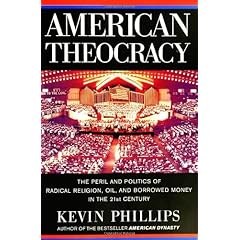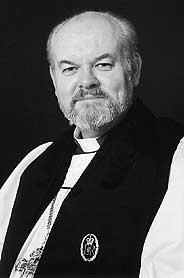First, the title. Is he equating the three?A reader wants to know what the silence is all about:
The radio silence on Lebanon from the left-wing blogosphere (i.e. Kos, Atrios) is fascinating, and your reader from the 'Liberal Blogs and Israel' post had it about right. To sympathize with Hezbollah would expose these bloggers to a potentially career-damaging backlash. However, to take the mainstream Democratic line of say, Chuck Schumer, would be to seriously alienate a chunk of their readership.
And for sure, Hezbollah sympathizers do exist on the left. One only has to listen to KPFA, the 'free speech network' broadcast out of Berkeley to get a taste of unfiltered Hezbollah propaganda, in which Mullah Nasrallah is characterized as the new Che Guevara. The Weekly Standard might have done better to listen to some of these transcripts, rather than to desperately fish around the diaries on Kos.
I've actually been skeptical of beating up on Kos on this. But I just read the last three pages of posts on the main site, and there's only one even vaguely alluding to the crisis with Hezbollah. That's just plain weird. I know we're not supposed to notice silence on blogs - people are free to ignore all sorts of stories. But the silence can be instructive (hey, I studied with a Straussian). This is Atrios' second-hand excuse:
I've said nothing about war in Lebanon or Ethiopia because I have nothing to add, and also because - as you may or may not be aware - the United States is actually involved in a hugely bloody war right now, and this is more of a pressing concern to me personally. I don’t know the secret formula for unshitting any of these beds - I promise I wouldn't be shy if I did - but I currently only have to sleep in one of them; and, as it turns out, that's the one bed where I actually have some miniscule chance of influencing the situation. So that’s my concern.
This would make sense if there were no connections between Hezbollah and Iran and Iraq. Are lefties unable to grapple with complex regional wars? Nah. They're just wimping out. My reader gives one plausible reason why. Is there a more persuasive one?
Second, are my eyes deceiving me, or is he actually accusing Atrios and Markos of laziness when he says "they're just wimping out"? As if they're not spending a lot of time writing about other things ...
Third, his question, "are lefties unable to grapple with complex regional wars?" is insulting and ill-informed. Digby has been writing about Lebanon regularly since the current crisis unfolded two weeks ago. I'll let him do the basic research to find out who else has been at it (but here's a short list to get him started: Billmon, James Wolcott, Matthew Yglesias, Juan Cole, Steve Gilliard, Tom Tomorrow, LiberalOasis, War and Piece, etc.). And what has been the lefty-blogosphere consensus? (If he would only dig around further than Atrios and Kos, he would see it!) That Iraq has put us in the position of being unable to deal properly with any new crisis in the Middle East. That we have been actively alienating the Iranian middle every since the GWOT started, and we're paying the price today (and that Israel's attacks are hurting the Lebanese middle, as well). That we've been badly neglecting the Palestinian-Israeli peace process. That the Israeli attacks on Lebanon may badly destabilize the Lebanese government and bolster Hezbollah's ranks rather than diminish them.
Do these sentiments seem critical of Israel at times? Yes, but they always come with complete condemnation of Hezbollah (and a desire for it to disappear completely from the map, or at least become peacefully folded into the Lebanese political economy).
Are these sentiments critical of Bush? Well, Sullivan will be the first to admit, nowadays, that Bush is worthy of criticism.
Finally, the presumption of him and the readers he's published that lefty bloggers want to criticize Israel, but are kept from doing so by their political ambitions, is inane. Leaving the false choice aside, has he stopped to consider that they might actually support Israel defending itself?
What's disappointing is that Andrew Sullivan is typically a lot better than this. But he's gotten into the habit of criticizing lefty blogs for superficial reasons. He really should stop this childish baiting and propagandist "the-left-is-scared-of-this-issue" myth-making when he knows full well there are plenty of bloggers on the left working on this issue nearly full time.


